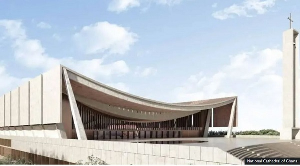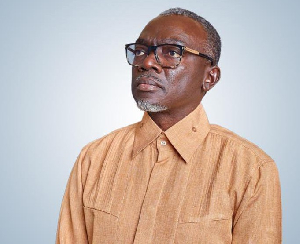Policy think-tank IMANI Centre for Policy and Education has called on government and its stakeholders to inculcate a significant measure of transparency in upstream natural gas contracting negotiations.
According to IMANI’s Research Assistant, Dennis Asare, in the case of the Sankofa-Gye-Nyame agreement, which was signed in 2010 and operated by the oil exploration firm ENI, there wasn’t enough transparency in the build-up to the signing of the agreement.
“...most of the time after these awards have been given to the IOCs, they’re then given to the stakeholders, so even if there’s an input you want to make, you can’t do it at the time the agreement has been signed.” Dennis Asare said.
IMANI Ghana made this assertion in a report presented, Thursday, June 27, 2019, on ‘The Effects of Upstream Gas Contracting on Electricity Tariffs and Inclusive Growth – The Case of the Sanfo-Gye-Nyame Gas Project.’
Dennis Asare added…“We are calling on government that the methods of allocating rights should be more open. Allow stakeholders to scrutinize the agreement before the final agreement is given to the IOC.”
Lack of transparency in upstream contracting process, IMANI has maintained, may jeopardize national goals for power generation and lead to higher electricity tariffs in the future.
Mr. Asare further emphasized that even though the Sankofa-Gye-Nyame (SGN) deal was to an extent transparent, it was not in conformity with International Best Practices.
“...There was transparency, but against international best practices or against international standards of ensuring that there is an open contracting process, The SGN agreement process was not sufficiently transparent...I want to point out that it is not about the number of meetings you have but how open these meetings are and how you disclose information about these meetings.” He emphasized.
However, due to the strategic importance of upstream oil and gas in the Ghanaian economy, IMANI has called on government to amend provisions to include some form of disclosure reports on key negotiation processes, which will include consultations and regulator engagements.
This according to the policy think-tank, would go a long way to ensure stakeholder input in contract negotiations, ensure affordable gas prices for power generation to achieve inclusive growth.
With a continual increment in utility tariffs over the past few years, for an oil and gas producing country, Ghana, IMANI deemed it necessary to conduct the study to find the causative factors of such increment.
Business News of Thursday, 27 June 2019
Source: www.ghanaweb.com

















